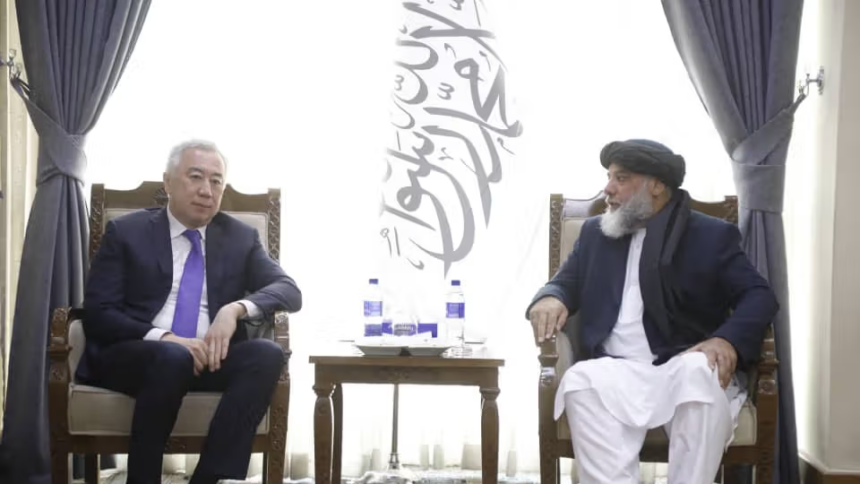RASC News Agency: Serik Zhumangarin, the Deputy Prime Minister of Kazakhstan, arrived in Kabul at the helm of a high-level economic delegation, signaling Astana’s intention to strengthen bilateral trade and investment ties with Afghanistan. The visit comes amid increasing regional engagement with the Taliban regime, despite its continued international isolation and human rights concerns. According to a statement released by the Taliban’s Ministry of Industry and Commerce, the primary objective of the visit is to convene the “Kazakh-Afghanistan Business Forum” and to explore new avenues for economic cooperation between the two countries across a range of sectors.
The Kazakh delegation is expected to hold a series of meetings with Taliban officials. The business forum, scheduled for Tuesday, will bring together state representatives and private sector stakeholders to examine potential collaboration in trade, transit, and investment. Upon his arrival in Kabul, Zhumangarin stated that a bilateral trade agreement would be signed during the visit. He further noted Kazakhstan’s interest in strengthening ties with Afghanistan, particularly in areas such as transit infrastructure, energy, and agriculture. Nuruddin Azizi, the Taliban’s acting Minister of Industry and Commerce, welcomed the delegation and announced that both sides are committed to increasing the volume of trade to more than $3 billion. He framed the visit as part of a broader effort to reposition Afghanistan within regional economic networks.
The visit is part of a growing trend in which Central Asian states excluding Tajikistan have expanded diplomatic and economic engagement with the Taliban. In recent months, Kabul has hosted several political and commercial delegations from Uzbekistan, Turkmenistan, and other neighboring countries. These visits have focused on strengthening trade corridors, developing infrastructure, and identifying opportunities for job creation and economic growth.xTaliban officials have portrayed such interactions as evidence of Afghanistan’s growing acceptance on the international stage. However, critics argue that regional cooperation with the regime particularly in the absence of human rights benchmarks risks legitimizing a government that remains unrecognized and widely condemned for its authoritarian rule, repression of women, and persecution of ethnic and political minorities.
While Kazakhstan’s overtures are seen as driven by strategic and economic interests chiefly involving agricultural trade and transit access concerns persist among international observers who warn that normalized relations with the Taliban could undermine broader efforts to promote human rights, democratic governance, and inclusive development in Afghanistan. As economic diplomacy unfolds in Kabul, fundamental questions remain: Can sustainable investment flourish under an unelected regime that continues to suppress basic freedoms, and at what cost to the Afghanistani people?






